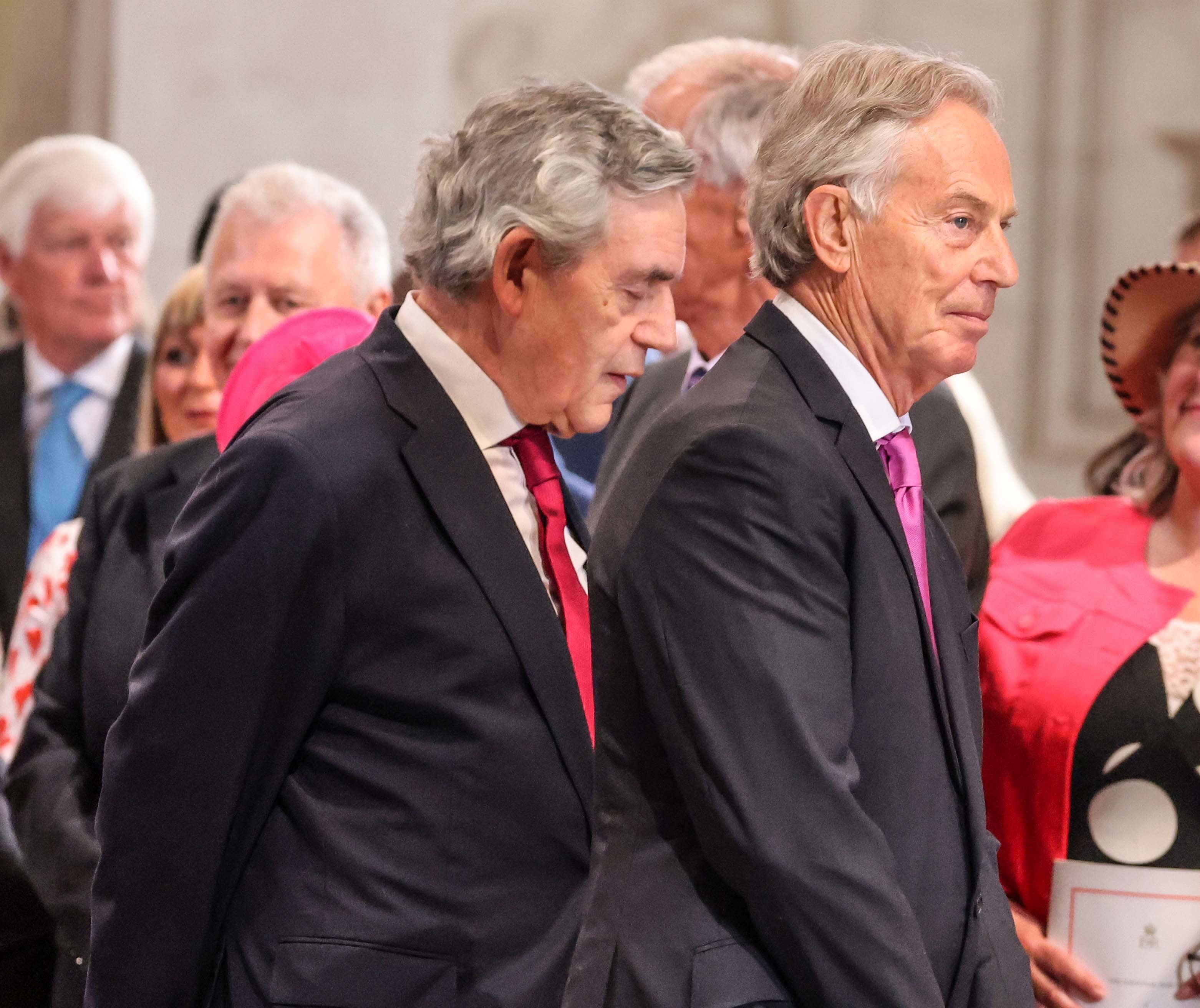What’s with the sudden return of all the old prime ministers?
It sometimes seems that barely a week goes by without Tony Blair or John Major, Gordon Brown or Theresa May popping up to issue a warning, writes Andrew Woodcock


There may be shortages of many things at the moment but one thing Britain doesn’t seem in any risk of running out of is former leaders with ideas about how the country should be run.
It sometimes seems that barely a week goes by without Tony Blair or John Major, Gordon Brown or Theresa May, popping up to issue a warning about the mistakes and missteps of their successors.
The trend came to a head on Thursday with a full day’s conference hosted by Blair in London with the grand title of The Future of Britain, at which a variety of policy wonks, commentators and ex-MPs opined at length on the challenges facing the country.
The former Labour leader’s shindig – nicknamed “Blairstonbury” by Westminster wags and attracting Tory moderates like Rory Stewart, Ruth Davidson and David Gauke – has inevitably sparked allegations that he is trying to create a new centrist party.
Blair himself flatly denies this, and it has to be said that with Jeremy Corbyn gone and the ignominious demise of Change UK, the rationale for such an endeavour seems to have vanished. Despite heading a think tank frantically pumping out reports on every policy area under the sun, the former PM shows no sign of being tempted to get back into the Commons.
So why do they do it? It wasn’t always like this. I’m too young to remember but I’ve not heard of Alec Douglas-Home, Harold Wilson or Jim Callaghan bombarding their successors with nuggets of wisdom.
Harold Macmillan roused from his slumbers to scold Margaret Thatcher for “selling off the family silver”, but that was an unusual departure. Even Thatcher herself, though never sticking to her promise not to be a “back-seat driver”, was largely restricted to a symbolic role as a totem for true believers who never accepted her removal.
Obviously, it must be very gratifying to be treated as an “elder statesman”, particularly for PMs like Major and Brown who were subjected to such scorn and ridicule while actually inside No 10. Being freed from the burdens of office somehow seems to give the pronouncements of ex-PMs a kind of gravitas they never enjoyed when bogged down by the grubby compromises of day-to-day politics.
But it also seems that there is a sense of frustration with the current generation of politicians. The ascendency of Boris Johnson has done away with the “good chap” theory that has governed Westminster for so long – the idea that those at the highest levels of politics will instinctively observe unwritten codes of honour and duty, which will stop them overstepping the mark.
So when Brown speaks of our moral duties to the developing world or May and Major warn of the dangers of flouting international obligations or Blair urges government to focus on the real challenges facing the country, it sometimes comes across as a kind of lament for the way politics is heading.
To which Johnson would of course be more than entitled to retort: “If you think that way, get yourself elected and do something about it.” Somehow, I don’t think our current PM will be frittering away his own retirement lecturing his successors on ethics.
Yours,
Andrew Woodcock
Political editor
Join our commenting forum
Join thought-provoking conversations, follow other Independent readers and see their replies
Comments
Bookmark popover
Removed from bookmarks